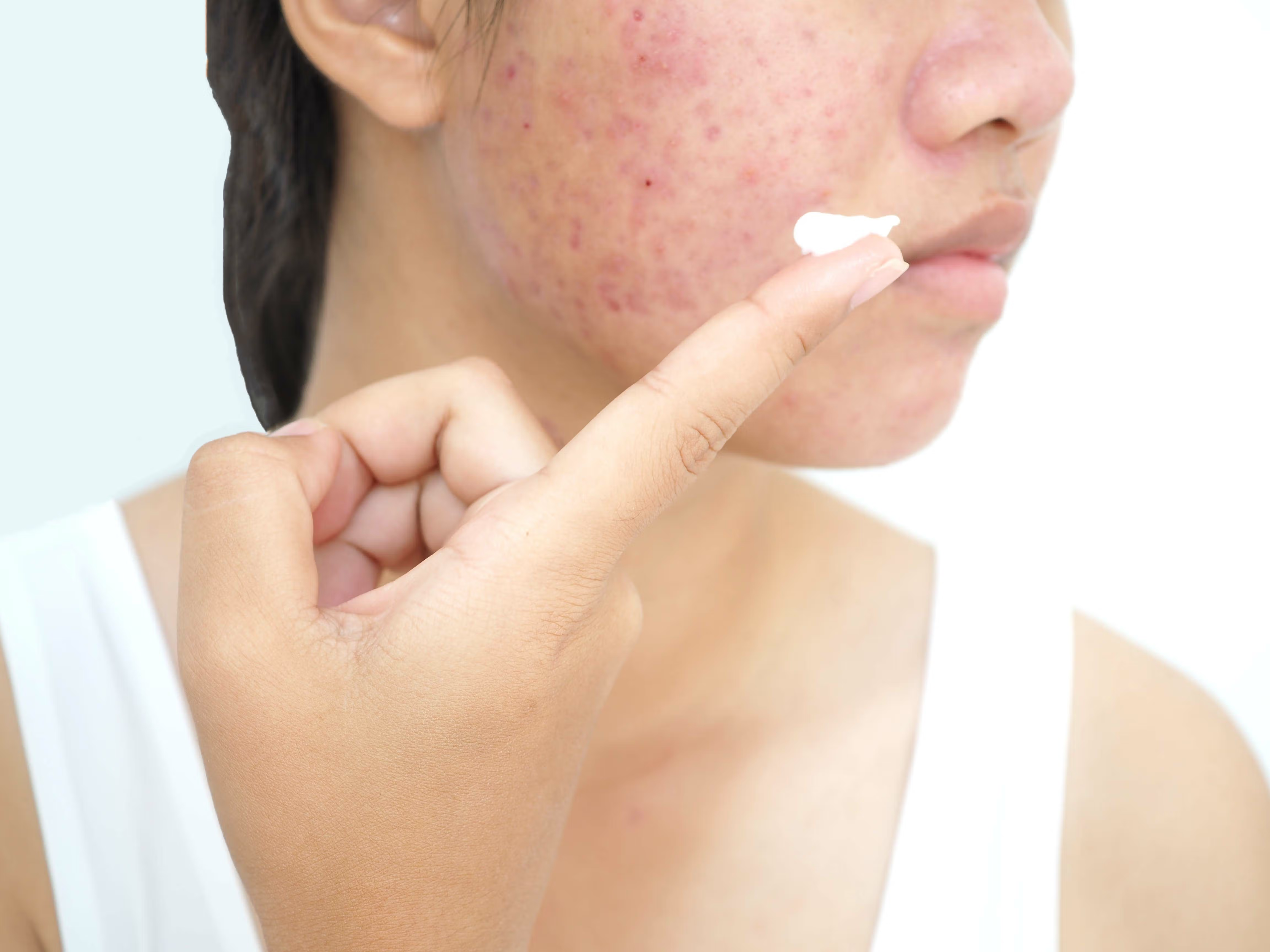- Case-Based Roundtable
- General Dermatology
- Eczema
- Chronic Hand Eczema
- Alopecia
- Aesthetics
- Vitiligo
- COVID-19
- Actinic Keratosis
- Precision Medicine and Biologics
- Rare Disease
- Wound Care
- Rosacea
- Psoriasis
- Psoriatic Arthritis
- Atopic Dermatitis
- Melasma
- NP and PA
- Skin Cancer
- Hidradenitis Suppurativa
- Drug Watch
- Pigmentary Disorders
- Acne
- Pediatric Dermatology
- Practice Management
- Prurigo Nodularis
- Buy-and-Bill
Article
FDA warns of allergic reactions to acne treatments
Author(s):
The Food and Drug Administration has issued a warning that some common over-the-counter acne treatments can cause severe irritation or even life-threatening allergic reactions.
The Food and Drug Administration has issued a warning that some common over-the-counter acne treatments can cause severe irritation or even life-threatening allergic reactions.
The products - available as gels, lotions, face washes, solutions, cleansing pads, toners and face scrubs - contain benzoyl peroxide or salicylic acid. They are marketed under brand names such as Proactiv, Neutrogena, MaxClarity, Oxy, Ambi, Aveeno, and Clean & Clear.
The FDA says the potentially serious allergic reactions such products can cause - throat tightness, shortness of breath, wheezing, low blood pressure, fainting, or collapse - are not listed on their labels along with the less serious reactions that do appear there, such as dryness, itching, burning, peeling, redness and slight swelling.
Between 1969 and February 2013 the FDA received 131 reports of serious allergic reactions to these types of acne products in people ages 11 to 78. Though no deaths were reported, 44 percent of the patients required hospitalization, the FDA noted in a statement, adding that it will continue to monitor the situation. The agency is asking manufacturers to include label information advising first-time users on how to test the product’s safety.
While the cases of hypersensitivity reaction to the acne products are rare, the potential for the reactions to be life-threatening is what led to the FDA's warning, according to a spokeswoman.
"It is important for consumers and healthcare professions to be aware of this potential serious adverse event so they can make informed decisions about using the products," FDA press officer Stephanie Yao said in an emailed statement to Dermatology Times. "Also, consumers should be aware that the severity and potential consequences of these hypersensitivity reactions may be distinct from the application site reactions, which consumers may more readily associate with product use and for which warnings already exist on product labels.
"As the FDA continues to monitor and evaluate this safety issue, the agency will work with industry with regard to any future labeling changes that would address the risk of serious hypersensitivity reactions," Ms. Yao said.
Next: Derms call warning 'over the top'
Dermatology Times asked three dermatologists for feedback on the warning.
“Having been in practice for 36 years and having treated thousands of acne patients with both of the so-called dangerous drugs, I have never had to send a patient to the hospital for adverse events,” says Helen M. Torok, M.D., who practices in Medina, Ohio. “I warn patients and their parents that an allergic reaction may occur from a topical benzoyl peroxide but that this reaction is localized to the treated areas, and if it occurs to immediately stop the drug. As for the salicylic acid, I do not advise patients on any adverse events because the majority have already utilized these in their acne topicals.
“Do I believe the report? Yes, most certainly, and it is rather disturbing. But again, by the time the patients reach our office they have all had exposure to these OTC products.”
Joel Schlessinger, M.D., of Omaha, Neb., said he thinks the warning about one of the ingredients is particularly over the top.
“In my 22 years of practice, I have never once seen a life-threatening reaction from benzoyl peroxide,” he tells Dermatology Times. “While clearly I have seen some significant allergic contact dermatitis reactions and some irritant reactions, going so far as to say (they are) life-threatening is a pretty big step. Sadly, it is another example of an announcement that will likely scare individuals unnecessarily. I won’t be changing my treatment regimens or medication instructions at all.”
Doris Day, M.D., a New York City dermatologist, sees the new warning as a reminder to patients to check for allergic reactions and read labels thoroughly when testing new products on their skin. She also suggested an alternative.
“One product I prescribe that doesn’t contain benzoyl peroxide or salicylic acid is Aczone (Allergan), which contains a unique ingredient, dapsone, that isn’t an antibiotic or a retinoid,” Dr. Day tells Dermatology Times. “Many of my patients tolerate it very well. It’s a great option for treating both inflammatory and noninflammatory acne.”
Dr. Torok advises the use of products containing adapalene, tretinoin, tazarotene, sulfacetamides and, as Dr. Day suggested, dapsone, as options.





